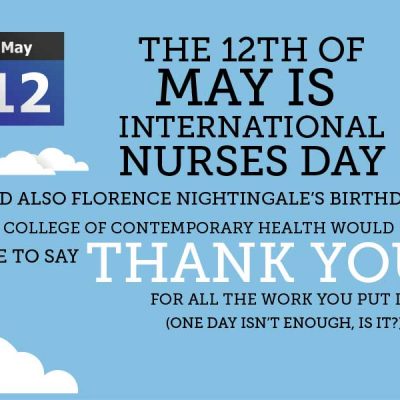
What is the Solution to the Diabetes Crisis?
What is the solution to our diabetes crisis? Just how do we prevent diabetes?
Last week in the UK, from the 16th to the 22nd of April, was Diabetes Prevention Week. The NHS, as part of their very own Diabetes Prevention Programme, set up the event in the hopes of raising awareness of the disease and their Healthier You programme. Diabetes Prevention Week provided an excellent chance to spread awareness of a disease that most people don’t really know anything about. The word diabetes for some brings up images of sugar-free diets, insulin injections, and in some cases, the possibility of losing limbs, but that’s about it. Unfortunately, most of the public are unaware of many of the details of the disease, from the 2 different types, to the causes of each type, or the impact it can have on the lives of those it affects, and that should certainly change. But besides campaigns such as this one by the NHS, what has actually been done, or even proposed, as a measure to help prevent diabetes? And, how do we prevent diabetes? Is it even possible?
To fully appreciate Diabetes Prevention Week you have to first understand the disease of diabetes. Not everyone knows, but there are two very different types of diabetes, type 1 and type 2. Type 1 is an autoimmune disease, which means that the immune system mistakenly attacks parts of the body rather than protecting them, and in the case of type 1 diabetes, the immune system attacks insulin producing beta-cells in the pancreas. This means that those with type 1 diabetes are incapable of producing insulin, making them insulin dependent, requiring them to inject themselves with insulin to compensate. It is not fully understood what the cause of type 1 diabetes is, however it is believed that both genetic and environmental factors are involved.
Type 2 diabetes is entirely different to type 1. The autoimmune system of those with type 2 diabetes functions properly, and instead of being insulin dependent like type 1 sufferers, type 2 sufferers are insulin resistant. Their bodies lose the ability to respond to insulin. The body compensates for the ineffectiveness of its insulin by producing more, but it can’t always produce enough. Over time, the strain placed on the beta cells by this level of insulin production can destroy them, diminishing insulin production. Around 90% of all diabetes cases are type 2, and the vast majority of them are caused by overweight or obesity. Although, it is believed that in some of these cases genetic factors are also involved.
Download our toolkit for reducing your risk of type 2 diabetes here: https://www.contemporaryhealth.co.uk/portfolio/reduce-the-risk-of-developing-diabetes/
Public awareness of the disease is a great tool in its prevention, however, governments across the globe are taking it upon themselves to develop and implement policies that will help reduce the numbers of those developing it even further. In Singapore for example, the Ministry of Health has outlined plans that they say will directly combat diabetes. Included in this plan is the installation of more water fountains in public places to wean people off sweet drinks, competitions to promote cooking healthy food, engaging with celebrities to promote healthier eating, restrictions on fast-food and snack advertisements, and giving out health points and travel rebates to encourage physical activity. It will certainly be exciting to see the results of this extensive plan, and just how preventative the proposed strategies prove to be.

The Singapore government will be implementing a new strategy to prevent diabetes.
In the UK, the National Health Service spends £12 Million a year treating those with the disease. This figure has united members of parliament and health professionals alike, to act immediately on the crisis. Tahseen Chowdhury, a specialist in diabetes and metabolism at Barts Health NHS Trust in London, suggested that “the NHS should put people with type 2 diabetes on drastic diets to reverse the condition, instead of spending billions of pounds trying to treat it.” Members of parliament have suggested recently that good preventative measure would be to restrict the advertising of junk food even further than it already is, and outlaw offers and deals on junk food that seem to be prolific in every major supermarket.
All aforementioned preventive measures by governments, MPs and members of the public, focus on diet and weight management, so why do we focus so much on diabetes prevention and not obesity and overweight prevention? Type 2 diabetes can be prevented and in some cases reversed, while type 1 can’t, so it’s misleading and confusing to have a Diabetes Prevention Week, when only one form of the disease can actually be prevented.
We should instead have an Obesity Prevention Week, as it’s impossible to prevent type 1 diabetes, but type 2 diabetes, which makes up 90% of all diabetes sufferers, can be prevented through effective weight management and lifestyle intervention. Not only will raising awareness for preventing overweight and obesity help prevent the majority of type 2 diabetes cases, but the whole range of comorbidities that come with overweight and obesity such as: heart disease, non-alcoholic fatty liver disease, metabolic syndrome, gout, sleep apnea, cardiovascular disease, hypertension, and many different types of cancer.
We will only ever have a solution to the diabetes crisis when we have a solution to the obesity crisis.





I have Diabetes type 2 and have a strong family history of it. Whilst I know this greatly increased my risk I feel that families with this risk should be given advice on diet, exercise and the signs and symptoms of pre diabetes. It would be cheaper to monitor those people and prevent before it became full blown Diabetes
I am now well on way to being diet controlled from taking high doses of insulin with the help and encouragement of my clinician.
If more people took control if they become diabetic cost would go down. I also ensure that my family are educated about it
To say that obesity is in the main the most common cause is demoralising and demotivating and also leaves diabetics of all types open to ill informed criticism and potential verbal abuse